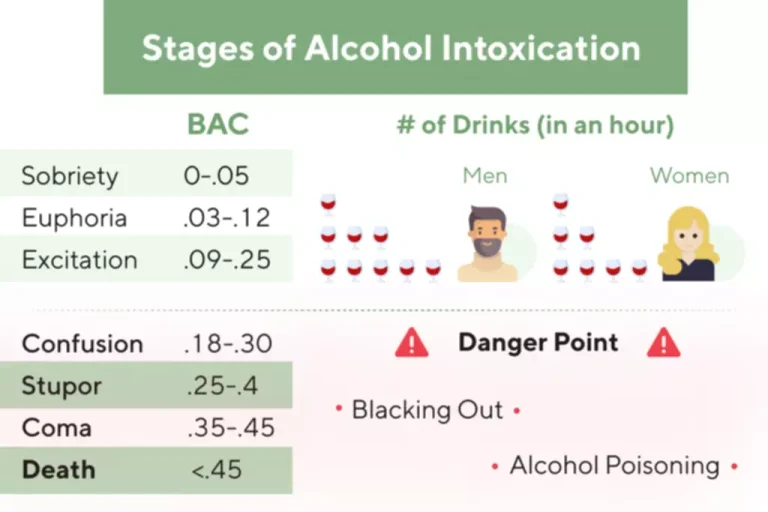Brain Fog: What It Is, Causes, Symptoms & Treatment

Many types of exercise stimulate the sympathetic nervous system which is responsible for “fight-or-flight” responses. Unfortunately, your body doesn’t know the difference between running on a treadmill or running from danger—both look like stress. In order to reduce stress, you need to flex your parasympathetic nervous system, which is engaged during rest and relaxation and helps to calm your body and your mind. You can do this by incorporating more meditation and yoga into your routine. Because it’s difficult to stay asleep, sleep apnea often causes daytime sleepiness and brain fog. Health experts think that the term brain fog captures many of the symptoms people have when there is inflammation in the brain or nervous system.

Identifying Underlying Causes
- In addition, brain fog and other cognitive symptoms can occur with attention deficit hyperactivity disorder (ADHD), particularly in adults.
- Various factors, such as stress and lack of sleep, can cause cognitive fatigue.
- According to research, cognitive fatigue denotes a decline in cognitive performance when engaging in tasks that require sustained mental activity.
- Brain mush may be a frustrating and all-too-common experience, but it doesn’t have to be a permanent state of mind.
In the meantime, Dr. Khandelwal says it’s helpful to create a new routine to help your life feel full and “normal,” rather than a series of days spent in a fugue state. It’ll help you better adjust to (and accept) your new normal for what it is. Dr. Khandelwal also believes that clearing the fog so many of us feel right now hinges on our ability to accept and adapt to our new (albeit temporary) reality. « Now, more data is coming to suggest that the pandemic may linger on for some time, » says Dr. Khandelwal. Coffee may provide a temporary boost and may also help with the long-term prevention of cognitive decline.

What vitamins help with brain fog?
A 2023 study investigated which supplements improved cognitive function. The researchers also suggested zinc and copper may specifically address brain fog and energy. With this information, your medical provider can craft a personalized health plan to address your brain fog and any other symptoms you may be experiencing. These are a few recommendations our medical providers and health coaches may have to help you get rid of brain fog. At Parsley Health, we work with our members to get to the root cause of their issues and resolve brain fog for good. After the initial infection is gone, COVID can continue to disrupt daily life.
- A lack of some nutrients, such as magnesium, can also contribute to the development of mood disorders that can also lead to brain fog.
- People with ADHD need to take extra care to be sure they’re well rested.
- Getting plenty of water, rest, and exercise can also help clear away mental fog.
Overlapping symptoms
Don’t hesitate to reach out to your primary care physician, who can help determine if further evaluation by a neurologist, endocrinologist, or mental health professional is necessary. They may recommend various diagnostic tests, such as blood work, hormone panels, or cognitive assessments, to get to the root of your mental muddiness. Cognitive fatigue is a decline in task performance that entails sustained mental activity. It may manifest in making frequent mistakes, difficulty staying focused, and taking longer to complete tasks.
Feeling foggy? Let us help you strengthen your mental clarity
Other factors that can contribute to brain fog include aging, substance use, and ADHD. Hormonal factors can also affect how sharp or foggy your mind feels. “The hormonal changes from pregnancy and menopause can cloud thinking as well,” Dr. Small explains. Brain fog can crop up for a number of reasons (and sometimes, it can be many factors working together). However, lifestyle variables like sleep (or the lack thereof) can also seriously interfere with your ability to think clearly.
- Your mind is in a state of buffering, like waiting for a video to load with an unstable internet connection.
- Problems with memory, focus, and decision-making can contribute to the feeling of brain fog.
- Don’t hesitate to reach out to your primary care physician, who can help determine if further evaluation by a neurologist, endocrinologist, or mental health professional is necessary.
- To eat to beat brain fog , stick to plant-based Paleo (mostly vegetables, enough protein, and always some good fats).
- I aced everything, could listen to hours of boring lessons even while only paying half-attention, and I could retain information because I could keep sharp focus.
- Self-care plays an important part in wellness and stress relief.
Your bedroom may not be the best place to study, especially if you mainly use it for sleeping. If you feel you’ve let yourself down, it may help to remind yourself you gave the work your best shot and got it done. Managing to get a project done while dealing with stress, overwhelm, or cognitive fatigue is something you can be proud of. Once you get your physical needs met, take a look at how you’re going about your tasks.
Treatment and how to improve concentration

The mush brain hospital was only a couple of minutes away, but I doubted my ability to find my way there, locate the emergency entrance, park, and sign my name. An afternoon walk is one option (my favorite), but you might also try dancing in your living room or playing a movement-based video game. Even super short micro workouts for 5 to 10 minutes (aka exercise “snacks”) can bust up the mental fog. This might involve working out or ecstatic dance, but any type of movement can help boost blood flow and recharge your focus. Relaxation techniques like deep breathing, meditation, and yoga can be incredibly helpful. But sometimes, just taking a little time to yourself can help you decompress so you can feel more alert.




